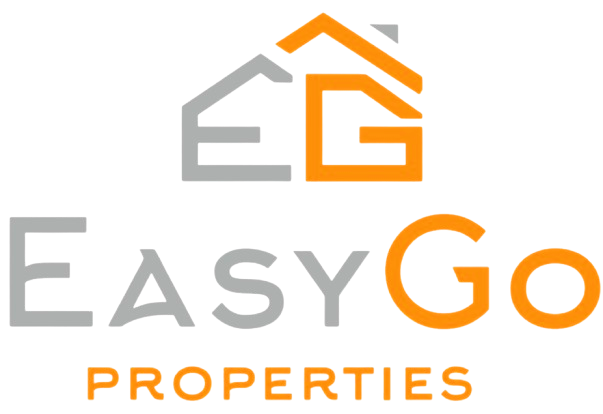Renting vs. Buying in the UAE: The ultimate Guide
Deciding whether to rent or buy property in the UAE is a significant choice influenced by financial considerations, lifestyle needs, and the dynamic real estate market. Dubai, with its iconic skyline and thriving economy, stands out as a hub for property investments and rentals. This guide breaks down the pros and cons of renting vs. buying, helping you navigate your options and make the right decision.
Benefits of Renting
Renting a property in Dubai offers unmatched flexibility and affordability, making it a popular choice among residents and expats. Key benefits include:
1. Lower Upfront Costs
Renting requires only a security deposit and a few months’ rent in advance, unlike buying a property, which involves hefty down payments, property registration fees, and other associated costs.
2. Flexibility to Move
Rental agreements typically last one year, giving tenants the freedom to move to a new property or location without being tied down by property ownership.
3. Reduced Responsibilities
Property owners handle major maintenance and repair expenses, allowing renters to avoid the financial and logistical burden of home upkeep.
4. Access to Prime Locations
Renting makes living in high-demand areas like Dubai Marina, Downtown Dubai, or Palm Jumeirah more feasible compared to buying.
Renting a property in Dubai also provides an opportunity to explore different neighborhoods before deciding to purchase a home.
Benefits of Buying
Owning a property in the UAE offers long-term financial and lifestyle advantages. Here’s why buying might be a better choice:
1. Building Equity
Unlike paying rent, where the money goes to the landlord, mortgage payments contribute to owning a property outright, creating a valuable asset.
2. Property Value Appreciation
Dubai’s real estate market is known for property value appreciation, making property ownership an excellent long-term investment.
3. Stability and Control
As a property owner, you’re protected from sudden rent increases and have full control over renovations, customizations, or even renting out the property for additional income.
4. Residency Benefits
Owning a property in Dubai above a certain value (as defined by the Dubai Land Department) can grant long-term residency visas, an attractive benefit for expats.
Investing in property in Dubai can also generate rental income if you choose to lease it out, capitalizing on the city’s high rental yields.
Financial Considerations
Upfront Costs
- Renting: Requires smaller upfront payments, such as the security deposit and post-dated rent checks.
- Buying: Includes a down payment (usually 20–25%), property registration fees, mortgage fees, and ongoing maintenance costs.
Ongoing Expenses
- Renting: Monthly rent payments are predictable, but renters may face increases over time.
- Buying: While owning a property has mortgage payments, the money goes toward building equity, not just “paying rent.”
Long-Term Returns
Buying a house in Dubai offers potential value appreciation, tax benefits, and the chance to profit through resale or rental income, unlike renting, where payments do not lead to ownership.
Lifestyle and Future Plans
The decision to rent or buy depends heavily on your personal and professional goals:
1. Flexibility vs. Stability
- Renting suits individuals with short-term plans in Dubai or those uncertain about their future.
- Buying provides stability for families or those looking to settle long-term in the UAE.
2. Career Mobility
Expats frequently moving due to work may find renting more practical, while owning a property is better for those with long-term career plans in the UAE.
3. Family Considerations
For families, buying a villa in Dubai or apartments in areas with schools and family amenities offers greater control and comfort.
Key Areas for Renting and Buying
Dubai offers diverse options for both renting and buying:
For Renting
- Dubai Marina: Popular for luxurious apartments and stunning waterfront views.
- Downtown Dubai: Offers proximity to iconic landmarks like the Burj Khalifa and Dubai Mall.
- Jumeirah: Ideal for families seeking a mix of villas and townhouses.
For Buying
- Apartments for Sale in Dubai: Ranging from affordable units to luxury penthouses.
- Villas for Sale in Dubai: Ideal for families looking for spacious living.
- Emerging Areas: Communities like Dubai South and Meydan offer affordable entry points for property investment.
The Dubai Land Department provides resources and tools like a rent calculator to help prospective buyers and renters.
Decision-Making Framework
To decide whether to rent or buy a property in Dubai, consider the following steps:
- Evaluate Financial Standing: Compare property prices, annual rent, and the costs associated with buying, including mortgage payments, property registration fees, and maintenance.
- Assess Lifestyle Needs: Determine whether flexibility or stability aligns with your current situation.
- Consult Professionals: A real estate agent familiar with the Dubai real estate market can provide insights into property value trends, rental yield, and cost of living.
- Use Tools and Calculators: Leverage a rent calculator to estimate monthly rent versus mortgage costs and analyze long-term benefits.
- Factor in Future Plans: Consider career prospects, family needs, and whether buying aligns with your long-term goals.
Conclusion
The decision to rent or buy property in Dubai ultimately depends on your financial situation, lifestyle priorities, and long-term objectives. Renting offers flexibility and lower upfront costs, making it ideal for short-term residents or those seeking mobility. Buying, on the other hand, provides stability, investment potential, and the opportunity to build equity over time.
Whether renting or buying a property in Dubai, the city’s thriving real estate market ensures a wealth of opportunities. Take the time to weigh the pros and cons, consult experts, and explore the vibrant communities the UAE has to offer.



